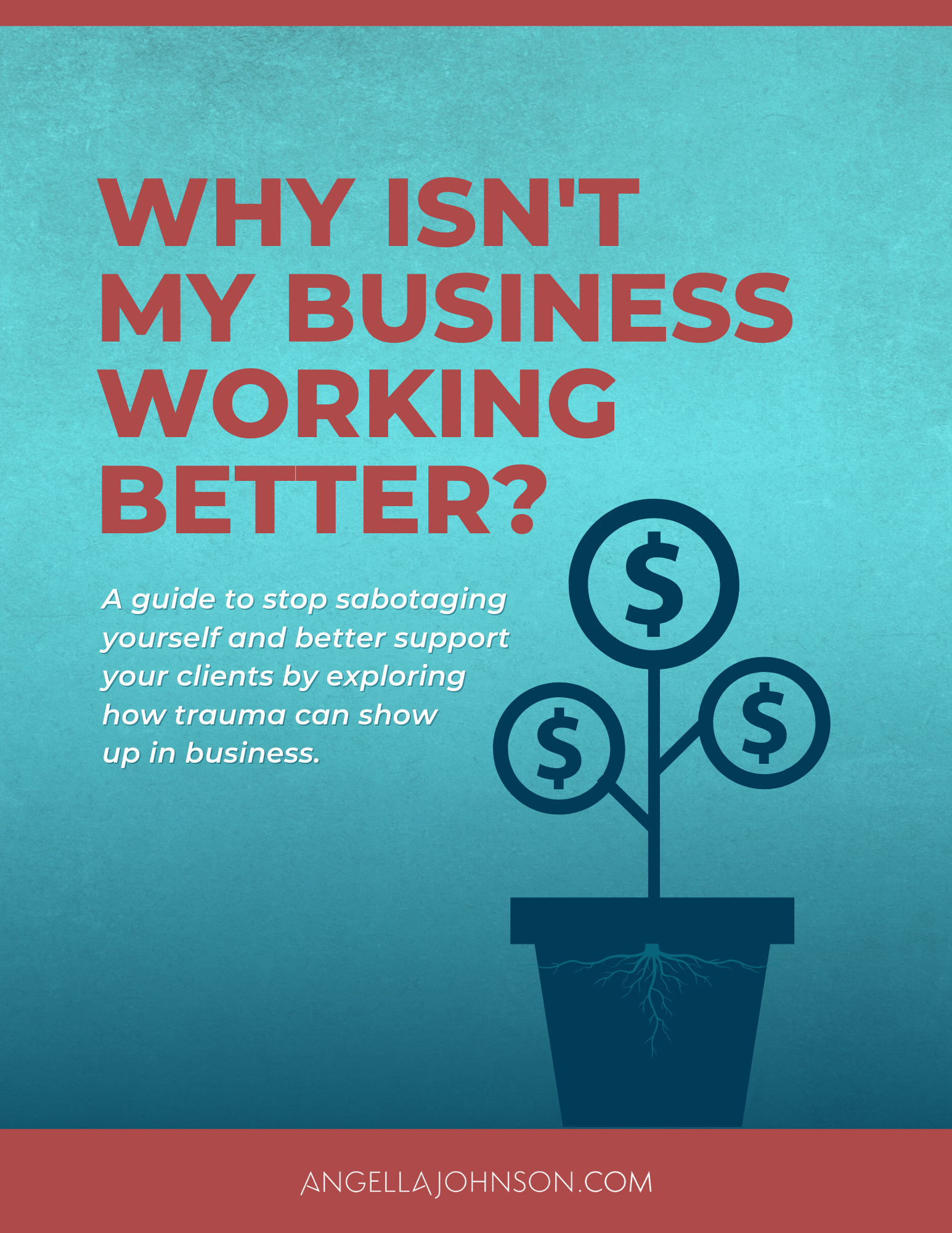Sales. For some folks, that is a 4-letter word.
And we see solutions to this 4-letter plague in the form of: (actual things I’ve heard experts say)
How to sell without selling.
How to sell without being sleazy or salesy.
Close high-end clients without selling.
Sales for heart-centered women.
And on and on.
The truth is, you’ve got to sell in your business if you want to be in business. If you want to avoid selling, then you are building a hobby. Period.
I hated selling. Then I attended an event years ago when the event host told everyone at the beginning of the 3-day event that “There will be a time when I sell something to you. And if you have issues with that, it has nothing to do with me, but everything to do with your money story and how you value yourself.”
I thought about that. And he was right.
Are there folks who do the whole guilt/shame/pressure sales? Yeah. And I don’t go to those events or typically connect with that vibe, so that’s not what I’m talking about here.
What I’m talking about is trying to disguise the sales conversation for anything than what it is: sales.
I attended a health workshop once and was totally jiving with the presenter. I was in my chair excited for her offer because I KNEW I wanted to work with her. And she didn’t make an offer. I was so disappointed. I was SO ready and felt totally let down.
Your prospects won’t work that hard to force an offer out of you. Your right clients want to know what their next step is.
Do you punk out on sales? If so, here are the top reasons why well-meaning folks sabotage their sales and what to do about it:
1. Has Comparison Killed Your Confidence?
If you are pricing your programs based on comparisons you are making from other folks in your industry, you are pricing your value based on someone else instead of YOURSELF.
When you go to price your products and programs, go within and sit with it for a day. Then after a day, check in and see if that pricing is still authentic. Then raise your price from there.
Muscle testing is always a great way to test your pricing to see if it’s truly authentic for you.
One great tip I received from Suzanne Evans years ago was: Price your programs according to your client’s value if you can’t line up with your own value yet.
In other words, it may serve you (big time) to stop making your pricing about YOU. What is the transformation of your client worth to you? To them?
2. You don’t know what you are offering.
This breaks down into two parts. One is your actual programs and products. The other is the transformation that is possible.
Part 1: Products and Programs
If you custom-create a package for every person who comes to you, you are likely undervaluing yourself and undervaluing your client. Custom proposals have their place, but have 1-3 core packages you offer and depending on what your prospect really needs, offer them the one that is the best fit.
Know the details of the benefits (why someone would want it and what it will do for them) and the features (how the program is delivered: number of calls, email access, length of the program, etc.
Part 2: What is the transformation that is available when someone works with you? Are you clear about that? Are you confident about what someone can accomplish and create when they work with you?
Warning: you cannot guarantee a client’s results. But when they show up, do the work and engage, then you know they will get something from working with you.
If you get stuck with this piece, it may be a sign that you are taking over-responsibility for your client’s results. Ultimately, it’s up to them to create results by their consistent actions and focus.
3. Sales can’t be scripted.
Sure I read a script when I first started doing sales calls. I was a nervous wreck and felt like I wanted to crawl in a cave. When it came time to state my pricing, I thought I might puke and I was sure the prospect could hear my voice trembling. But I did it. And if you want to do this, you’ve just got to do it scared.
After working my way through clunky scripts, I made that script my own. Now I don’t use one because I know what I’m doing and I love inviting the right people to grow their business with what I can offer them.
Basic Sales Process:
Acknowledge the person for upleveling their life. Ask them if you can be honest with them in your feedback to them. You would think that people are open to feedback, but sometimes people get on the phone with you to be justified in their playing small. And you don’t have time for that. Either do they.
Set the stage: Let the person know how the call will flow.
Ask the right questions and LISTEN. Ask the person a version of these questions:
- What isn’t working
- What do they want
- What are they willing to do to get it
- Why don’t they have it
- When are they ready to change it
- Throughout this you are speaking to their objections and noticing patterns in what they share so you can see if they are truly a good fit for you.
- Make the invitation ONLY if they are a fit for what you have to offer.
- Confirm the details (contract, deposit, etc.) Hint: take a deposit WHILE you are on the phone.
There are many other tips I can give you for sales, but that is a much longer conversation. I can’t teach you in five minutes what five years of doing sales conversations have taught me. That is one of the trainings in my Soul Vision Business School
The biggest key to selling is to LISTEN.
Listen to what the person is saying and what they aren’t. On a sales call you do 70% listening and 30% talking.
Serving people in your business requires sales. If you feel awkward, scared or downright turned off from sales, here is my biggest piece of advice: Get over it. Stop making it about you and make it about the person who is right in front of you and serving them to your fullest capacity.
Inviting people to invest in themselves through your products and services is really amazing way to change the world.
Take on your sales with a new outlook and see what can change.

